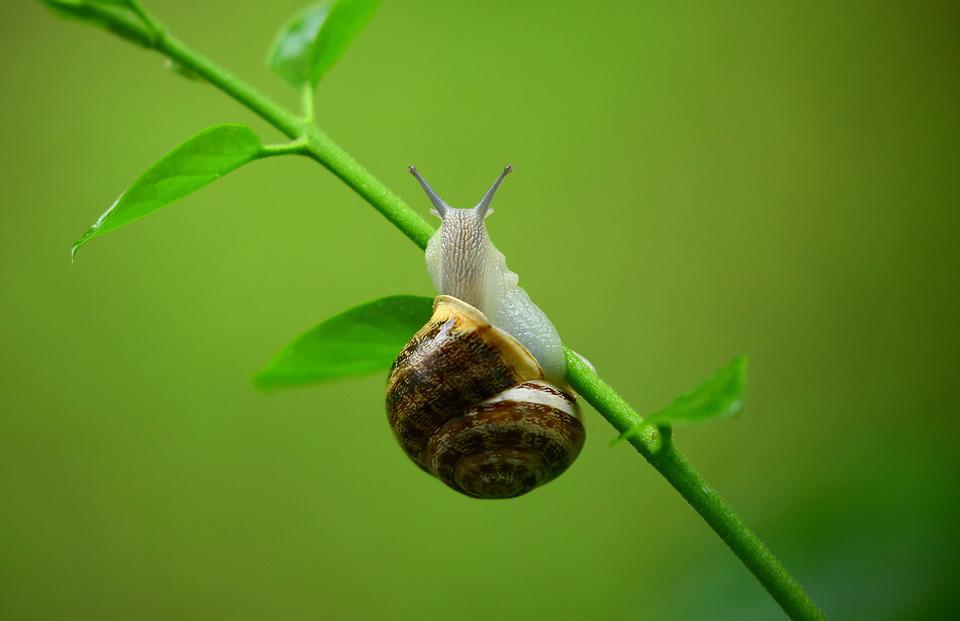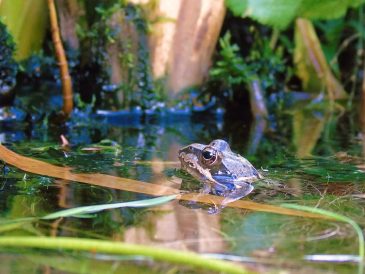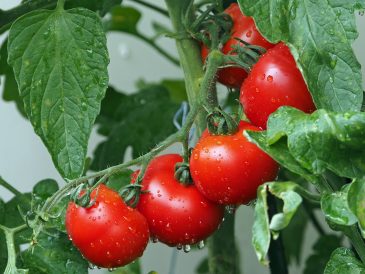While there are many plants that snails love to eat, such as the well-known hosta, there are also plants that snails prefer to avoid. To prevent snails from infesting your garden, the natural solution is to plant these plants in your garden. In this blog, we will introduce you to some of these slug-fighting plants.
1) Donkey Ear Plant
Donkey ear is a hairy, gray-leafed plant. Slugs absolutely hate crawling on these hairy leaves. It is evergreen and flowers from June to August. During this flowering season, stems with pink flowers appear and grow to a height of about 40 cm. It is preferable to grow them in a sunny location in dry soil.
2) Marigold
Marigolds are 20 to 50 cm tall and bloom from June to October with yellow-orange flowers. Marigolds brighten up any garden with their colorful appearance. However, marigolds have a strong odor, which snails do not like very much. This colorful anti-snail plant can also be enjoyed in the fall.
3) Agricultural Crops and Herbs
As much as snails love lettuce, they will definitely avoid the arugula in your garden. The same goes for tomato plants. Strongly scented herbs such as mint, lavender, sage, thyme, and garlic can also help make your garden snail-proof.
4) Foxglove
Slugs dislike the strong smell of foxglove. This plant is poisonous and does not make a tasty snack for snails. Foxglove is one of the most eye-catching plants in the garden. With beautiful pink, lilac, yellow, and white thimble-shaped flowers, this plant is the star of the garden.

5) Yarrow
It is not surprising that snails avoid yarrow, as they have been found to dislike fragrant plants and soft leaves. Yarrow not only has velvety leaves, but also a camphor-like scent. Yarrow blooms from June to August in sunny locations with golden flowers.
6) Grasses
Ornamental grasses come in various forms and add a unique ambiance to the garden. Choose those with thick leaves, and you won’t be bothered by slugs. Choose evergreen (Festuca glauca, Carex, etc.) or deciduous (Pennisetum, Miscanthus, etc.) plants to keep their beautiful silhouette even in winter.
7) Christmas Rose: Hellebores
The blooming of Christmas roses is undoubtedly not limited to the Christmas season. Today there are wide varieties, some of which flower (even) in the spring. These are beautiful plants and even more beautiful flowers, but they are not liked by slugs, which is a bonus in this case.
8) Yucca
Hardy and robust, yucca, yucca gloriosa, yucca rostrata, and yucca filamentosa have thick (and pointed) leaves that give the garden an exotic look. This makes them easy to combine with other Mediterranean plants. It is not snail-proof, but it looks much more beautiful. In time, it can also produce flowers.

9) Ferns
Ferns with thick leaves are a significant obstacle for snails; whether you have one or several, you can fill large areas of your garden with these plants. Some are semi-evergreen, while others die in winter and reappear in splendor in the spring. For example, choose Polystichum setiferum (coniferous soft fern) or Pteridium aquilinum (branching fern). Dryopteris filix mas (male fern) grows a little taller, up to 70 cm, and is semi-evergreen.
10) Astrantia
Zeeuws Knoopje is a plant with beautiful flowers and lush green foliage, but despite its fragile appearance, it is also not a snail-friendly plant. You can choose from pure white flowers, cheerful shades of pink, or deep colors such as dark red.
11) Anemone
With its fresh green foliage and white flowers that bloom in the fall, the anemone is an essential part of the garden. This snail-resistant plant has the added benefit of not being eaten by snails. If pink is your preference, choose the pink-flowered Anemone.

Let us know if these tips have helped you in the comments below!





